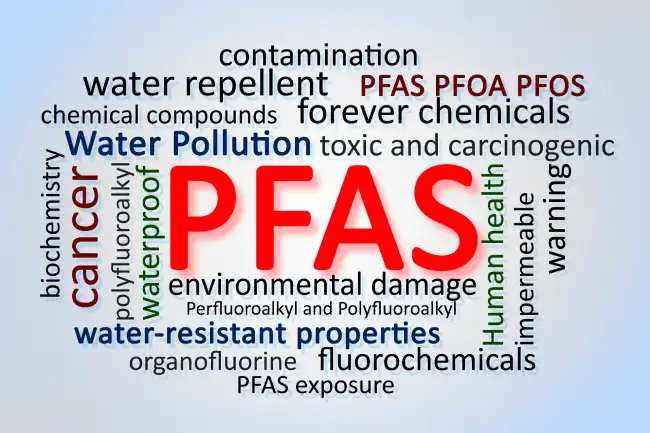7 Key Benefits EHS Providers Should Offer Life Sciences Startups
As a facility/operations manager, lab manager, or CEO for a startup life sciences company, you face many environmental, health, and safety (EHS) challenges. You need to protect your employees and the public—without breaking the bank—while continuing to innovate and grow. You can turn those challenges into a competitive advantage with the right partner.
Your EHS performance will crucially affect the way the public, investors, and employees judge your company. It relies on a skillset you won't typically find in your team members during the initial months and years in business. But at this critical period for your organization, finding the right partner to support your EHS operations can help you succeed against the fierce competition—and let you arrive at market as fast as possible.
Best and Worst of Biotech Times
We know this is an unusual period for the industry overall. Biotech funding is down (relative to last year’s amazing levels, at least) and initial public offerings (IPOs) have been becoming scarce. But there is still money available, and it’s driving startup activity in the key innovation hubs, such as Boston, San Francisco, and San Diego. The M&A sector has shown signs of life, too.
Given the mixed signals, what is key for success is to make the most of these opportunities in a competitive market. For a startup, that means creating and maintaining safety and efficiency in your operational culture—and avoiding any events that might result in financial or reputational damage.
Initial success in establishing sustainability goalposts will guide you through the research and development phase, to approval, and on to the market. (Those startups seeking an M&A must go through due diligence, which involves permit and compliance status review, too.) In the end, you’ll also remain audit-ready, and capable of maintaining compliance with federal, state, and regional safety rules and guidelines.
EHS Burden for Startups
The journey of a startup will present intense EHS-related challenges, as there are so many key milestones and requirements. They include commissioning your first lab space; decommissioning when you upsize; as well as managing change and ensuring research operations resiliency. So, productive EHS program management is critical.
Biotech startups must address many specific areas, including:
- On-boarding new employees and refreshing existing employees regularly in core safety concepts—such as chemical and lab safety, and biosafety
- Conformance with local, federal, state, and regional regulations
- Sustainable waste management
- Facility safety assurance—for instance, biological safety cabinet/chemical hood certification
- Compliance documentation and reporting
- Initiating new permits, as needs change—and renewing permits and licenses quickly and accurately
- Emergency spill response preparation
- Communication of objectives to key stakeholders
- Inventory management
As you grow, new employees, technologies, and ideas will enter the organization. Researchers may explore the latest technologies, chemicals, and processes—guaranteeing the biosafety risks are ever-changing. In the middle this evolution, it’s likely that your EHS demands outgrow your initial compliance program.
Typically, it is especially difficult for a small startup to staff the trained personnel needed to manage these areas. Regulations and inspectors change, jurisdictions adapt their expectations, and your operations change—steady adaption requires experienced judgement. Given the many EHS tasks spread among such a small set of employees—and busy R&D staff—it’s tempting for an organization to skimp on compliance. But this can lead to:
- Compliance gaps
- Failed inspections
- Fines
- Injuries
- Project challenges/regulatory delays
- Shutdowns
On the other hand, there are proven EHS vendors who can address these needs on your behalf through EHS outsourcing. The specifics of the partnership will depend on your organization’s needs, budget, and resources, but with proper due diligence, it’s possible to match your vendor to your unique business and development model.
Qualifying Your EHS Partner
When you begin your search for an EHS company, you should verify your partner enables:
- You to have freedom to focus on core competencies: As an innovator, you want to spend as much of your internal time and energy on getting to market. Managing an EHS program is not always a core competence—and for some companies, it is a distraction. That’s why your partner must demonstrate it can own the compliance and waste disposal burden. That way you can devote yourself to feeding your pipeline, without compromising on safety, efficiency, and sustainability.
- Complete long-term compliance: As a startup, you’ll be growing and may need to revise your EHS approach over time. You may go from being a small waste generator to a large one—which can require official reclassification. And environmental and waste regulations constantly evolve. Your partner must understand the relevant statutes and best practices, and ensure you support these in your operations through your entire lifecycle. Additionally, you can find vendors that provide veteran consultants. They can assist with a wide variety of key tasks, including the filing of major permit applications, performing advanced assessments, earning ISO certification, and the like.
- A cost reduction/efficiency boost: Hiring and training specialists, procuring new systems and equipment, and implementing maintenance programs eat up time and money. Given the cost of an internally staffed EHS operation, outsourcing may be more economical—and enable greater efficiency. A flexible third-party can offer you best practices, top-notch and accredited personnel, and a tailored EHS program that exactly fits your budget and business model.
- Audit-readiness: At any time, your EHS partner team members should be able to provide a simple audit or gap analysis to pinpoint any compliance concerns and provide remedies. This ensures you avoid fines and violations in case of an actual official audit. And it enables you to function optimally.
- Risk/liability reductions: Your EHS vendor should dedicate itself to reducing your risks and liabilities. The partner’s team members should develop and implement safety plans—as well as provide training, conduct safety inspections, and more.
- Employee safety: It’s essential that your EHS vendor craft and roll out proper safety protocols and procedures. The team members will ensure your employees are safety proficient and can execute any standard operating procedure (SOP) to deal with emergencies or events.
- The ability to improve data sharing, reporting, and more via electronic platforms: The vendor should offer cloud-based solutions that can grow with your business and that ensure data accuracy. Such solutions will streamline the processes involved in fulfilling EPA (and other) reporting requirements and support streamlined, continuous operation. The data generated in these systems can improve operations and create key performance indicators (KPIs).
Triumvirate Environmental can support life sciences clients of all sizes and types. We even offer a Jumpstart program to provide critical initial permits and procedures for firms moving into their first dedicated spaces—or for more mature organizations, into larger facilities. Also, our unique EHSOne® program provides the complete services needed for a safe and compliant site—all under one contract. From regulatory trainings to safety plans and facility services and more, our EHS specialists can support your needs as you continue to grow. Contact us today.






